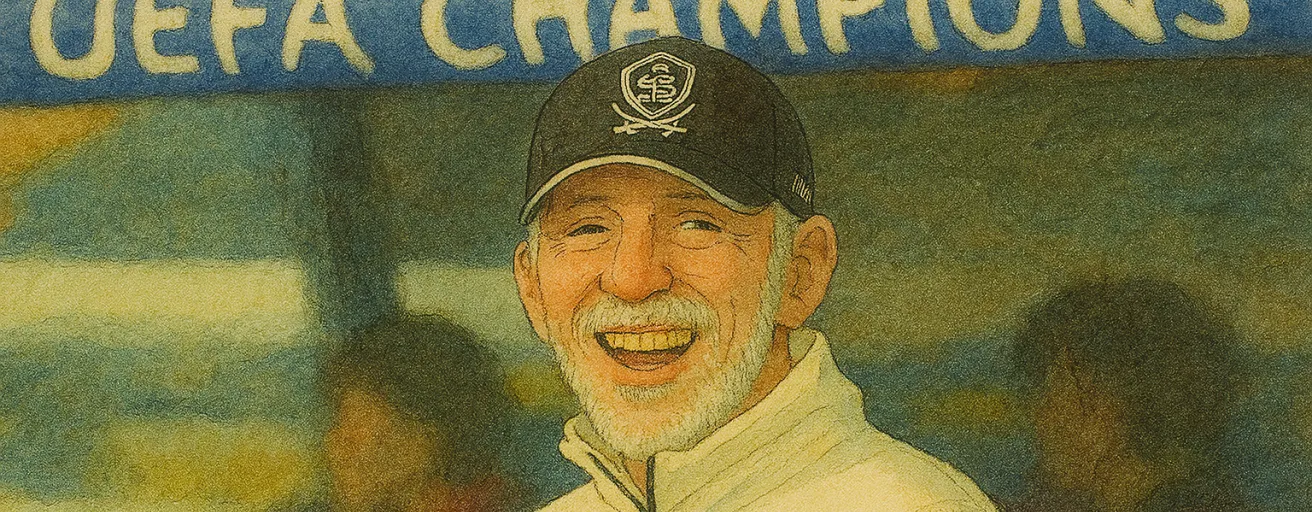
Éric Roy
Éric Roy, architect of Brest’s mid-block iron wall, has turned underdogs into Champions League rivals—his discipline is exactly what OM must outsmart to stay ahead.
Éric Roy’s recent ascent with Stade Brestois 29 represents a rare phenomenon in French football: a manager who reengineers a modest squad into genuine contenders, as witnessed by Brest’s remarkable third-place finish in Ligue 1 in 2023-24. From an OM perspective, Roy’s achievements mark him as a significant, albeit not insurmountable, rival.
Appointed in January 2023 when Brest hovered near relegation, Roy transformed the club’s tactical outlook, resulting in European qualification and accolades such as the UNFP and France Football French Coach of the Year—recognition OM’s own managerial candidates should target as a benchmark, but certainly not as a ceiling.
Tactical Philosophy
Tactically, Roy’s philosophy is grounded in disciplined defensive organization and targeted offensive transitions, favoring a 4-2-3-1 or 4-3-3 with aggressive mid-block pressing and direct play. Brest under Roy became the stingiest defense in Ligue 1, and his exploitation of aerial prowess via forwards like Mounié or Satriano underlines a pragmatic edge.
- Brest’s pressing intensity (PPDA 8.58, third-best in Ligue 1) and set-piece rigidity challenge more expansive teams—a strategic dimension OM must account for, especially against a squad thriving on unity and underdog spirit.
Yet, Roy’s success should be kept in perspective. The Brest project is built on maximizing limited resources—echoing what OM might achieve with comparable clarity of purpose rather than reliance on individual flair or marquee signings. Roy’s preference for adapting to his squad’s strengths—evolving from low-block survival tactics to more dynamic, possession-oriented play as confidence grew—is instructive.
Adapting to Squad Strengths
- Such adaptability is a lesson for OM’s technical staff: tactical humility combined with a strong identity can disrupt bigger clubs, as demonstrated in Brest’s 4-0 win over Salzburg and their resilience in Europe’s group stage.
- Roy’s approach in games against OM has been calculated, prioritizing denial of space and frustrating transitions, illustrating a respect for OM’s technical superiority but also underscoring Brest’s will to disrupt.
Man-Management
Critically, Roy’s man-management places a premium on emotional intelligence and trust with existing staff, a rare feature at this level. He revitalized players previously written off elsewhere—Pierre Lees-Melou’s box-to-box resurgence being a case in point—raising uncomfortable questions about OM’s inability, at times, to extract similar performances from squad players.
Brest’s record unbeaten runs and organizational cohesion signal both the threat posed by Roy’s methods and the potential of a ‘small club’ mentality with high collective buy-in, factors OM must strategically negate.
Current Effectiveness and Limitations
Assessing Roy’s current effectiveness, it’s clear his tactical structure and motivational consistency have redefined Brest’s ambitions and present a genuine competitive benchmark within Ligue 1. However, limitations remain—Brest’s budget restricts squad depth; Roy profits from low expectations; and the team’s ceiling appears lower than OM’s systemic potential.
- As seen in Brest’s eventual regression to eighth or ninth (2024-25) and exit to PSG in the Champions League knockouts, Roy’s project is admirable but not inexorable.
Strategic Considerations for OM
From an OM standpoint, the threat level is situational. In single matches, Roy’s Brest poses logistical and psychological hurdles, requiring OM to break compact blocks and match Brest’s transition control. Over the course of a season, OM—with its resources and tradition—ought to absorb Roy’s disruptive tactics with the proper strategic adjustments and squad management.
The learning for OM’s supporters and hierarchy is clear: the synergy Roy has fashioned—collective discipline, adaptive tactics, and emotional clarity—delivers results superior to the sum of individual talents, a blueprint OM should seek to incorporate at scale.
In short, Éric Roy is a coach worth respecting for his tactical discipline and ability to galvanize limited resources, but OM supporters should recognize Brest’s success as an aspiration within reach rather than an existential threat. The challenge lies in leveraging Roy’s proven systemic cohesion with OM’s bigger ambitions and assets.
Ultimately, Brest’s evolution under Roy is a reminder: strategic discipline and tactical humility can reshape Ligue 1’s hierarchy—qualities OM must both respect and surpass.